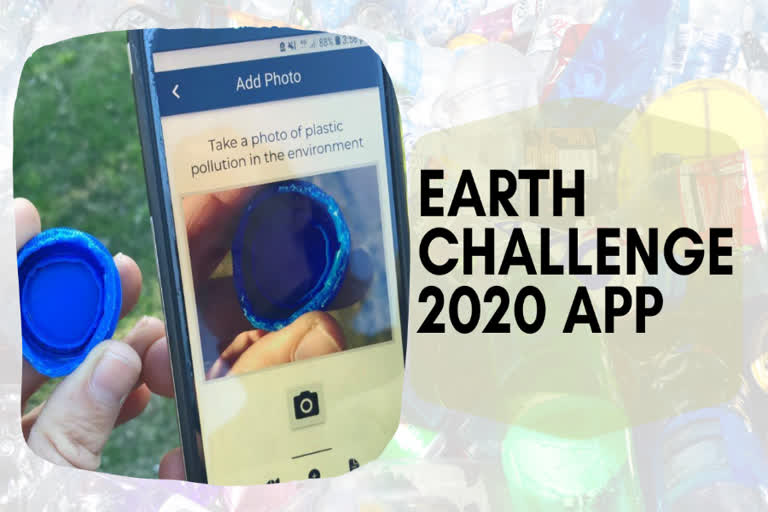CSIRO, Australia: The wait is over, Wilson Center, a U.S.-based international think tank, the U.S. Department of State’s Eco-Capitals Forum (ECF), and the Earth Day Network has created the Earth Challenge 2020 app which can easily map plastic anywhere around us.
ETV Bharat / science-and-technology
Mapping plastic pollution via Earth Challenge 2020 app
Day by day plastic is becoming one of the serious problems in the environment. So whenever we hear about plastic, we feel that if some devices are there to map it, then it would be easy for us to reduce the burden. Earth Challenge 2020 app can easily map plastic anywhere around us.

From this app, you can upload images of plastic pollution when you see it, and no matter where you are. Whether you’re walking along the beach or going for a stroll in your neighborhood, use your phone and upload a snap of any rubbish that you see. But every photo you upload will support the fight against plastic pollution. So what are you waiting for, just start clicking it?
- Images clicked by individuals will feed into a global database to provide scientists and global governing bodies with information on plastics. This data includes where it’s found, the different types, and how much there is.
- The app will bring you together with thousands of people from across the globe. You’ll be part of a citizen science effort to generate plastic pollution solutions. This project uses leading methods for data collection to measure plastic pollution.
- If more users use the app, we can easily reduce plastic pollution. Even we will get a better idea of the type of plastics on our streets, in our waterways, on our beaches, and in our oceans. We are also aware of the detrimental impacts plastic pollution has on marine life, the environment, and human health.
- So this app will highlight what needs more attention to generate solutions and tackle plastic pollution.
- Further, the team is also partnering with the Atlas of Living Australia and international groups such as the United Nations Environment Programme (UNEP), Citizen Science Asia, the Group on Earth Observations (GEO), and many more.
Also Read:Parkes Radio Telescope, icon of Australian science and innovation, added to National Heritage List of Australia